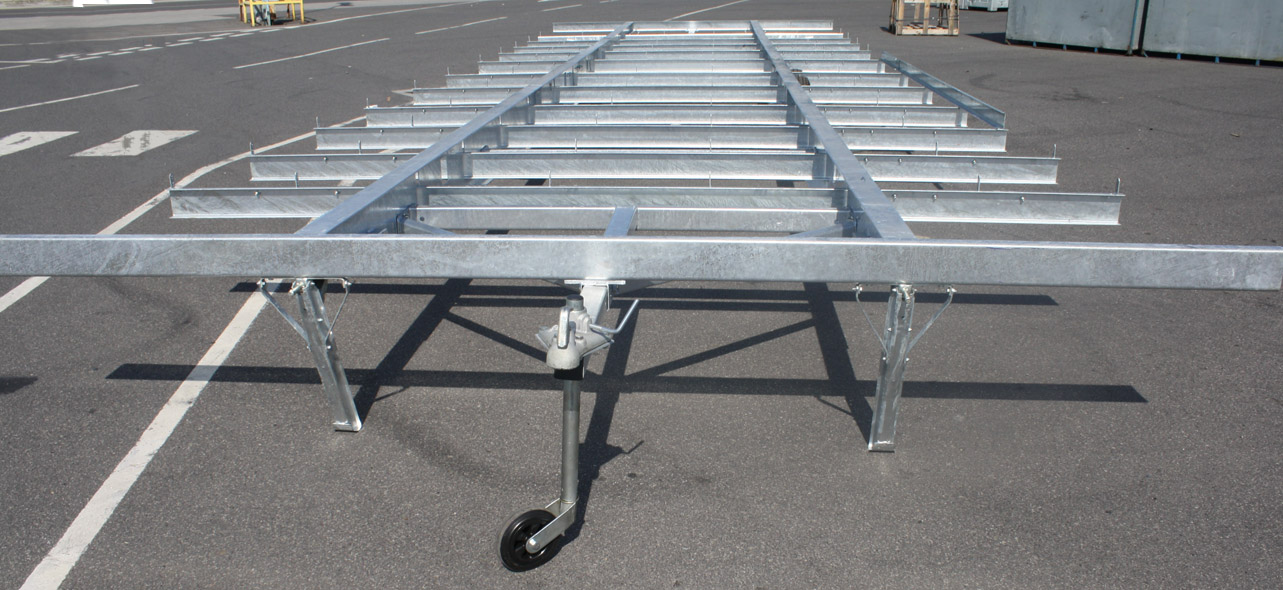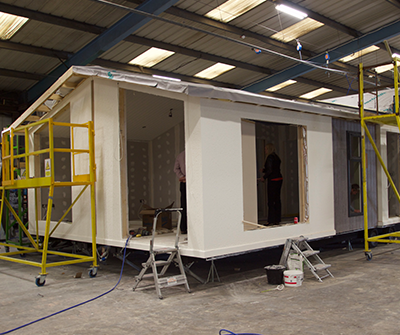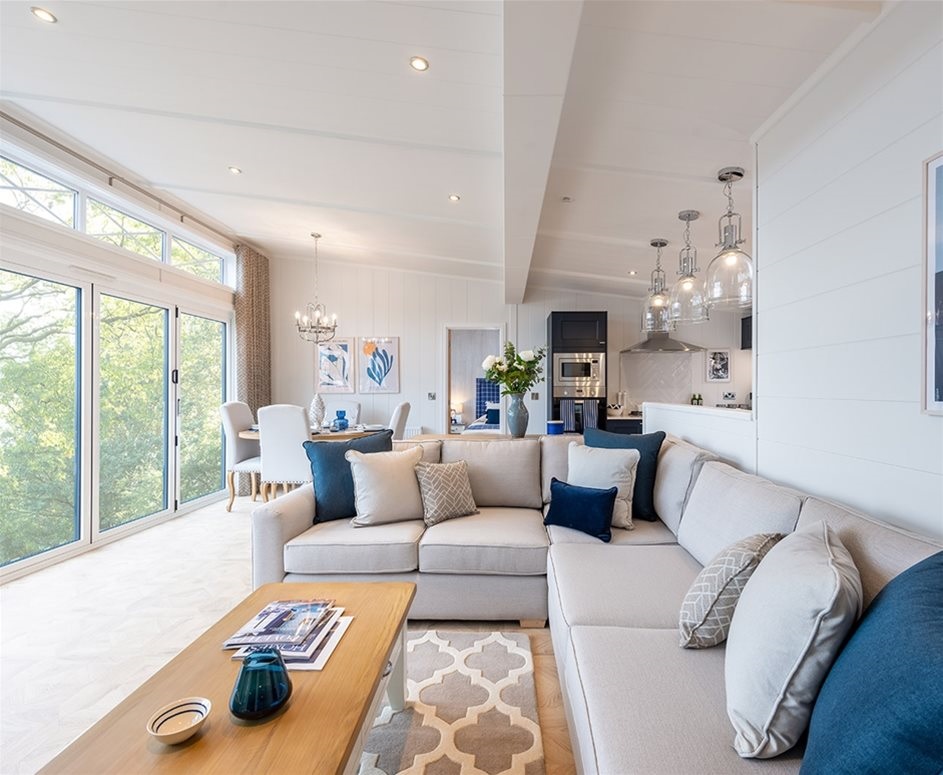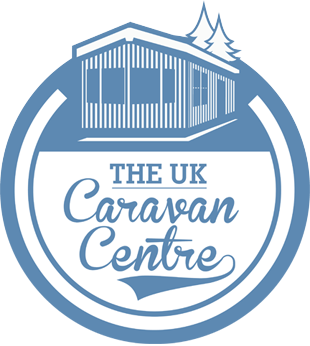Static caravans, also known as mobile homes, holiday homes, park homes, or lodges, are constructed in a factory using a combination of materials that provide strength, insulation, and durability, before then being transported and installed at the customer’s desired location. The prefabrication process and exact materials used (which may vary depending on the manufacturer and specific model) make them a much more affordable choice than a traditional brick-and-mortar home in many instances. Here are some common materials used in the construction of static caravans:
Steel chassis: The base of a static caravan is usually a steel chassis, which provides a sturdy foundation and structural support. Many manufacturers also offer the options of a galvanised or pre-galvanised chassis, although in most cases & locations this would not be a necessity.

Timber frame: The main structure of the caravan is often made of timber, such as treated softwood or lightweight engineered timber. The frame provides the framework for the walls, floors, and roof.
Wall panels: The walls of static caravans are typically constructed using a combination of materials. The exterior side may consist of materials like weatherboard cladding, vinyl siding, or aluminium panels. Some manufacturers also offer optional upgrades to cladding such as CanExel which is a popular low-maintenance engineered wood cladding (made of wood fibres, resins & wax) with both aesthetic appeal and durability, and comes in a selection of colours to suit your surroundings and style.
On the inside, the walls may have plasterboard or other wallboard materials for finishing. For a smooth finish, the narrow vertical gaps between the wall-boards are usually fitted with a trim known as a ‘knock-in’.
Insulation: To provide thermal insulation and improve energy efficiency, static caravans often have insulation materials installed within the walls, floors, and roof. Common insulation materials include expanded polystyrene (EPS), mineral wool, or rigid foam insulation.
Roofing: The roof of a static caravan may be constructed using materials like metal, asphalt shingles, or fibreglass. It is designed to protect the interior from weather elements. Whilst the roof may look like it is constructed of individual ‘tiles’, this is not usually the case and is typically large sheets fabricated into a tiled-look finish.

Windows and doors: The windows and exterior doors of static caravans are typically made of uPVC (unplasticized polyvinyl chloride) frames, which offer good insulation and durability. They are often double-glazed to enhance energy efficiency. The interior doors are now typically the very same type of timber doors that one would find in a regular bricks-and-mortar house.
Interior finishes: The interior of a static caravan may have various finishes, including wooden or laminate flooring, gypsum plasterboard walls, and ceiling panels. The specific materials used for these finishes can vary depending on the manufacturer and the desired aesthetic.
Furniture & soft furnishings: Most caravans now come fully furnished, including lounge and dining furniture (some may be fixed seating, whilst others may be free-standing), beds and fitted wardrobes, fully fitted kitchens (usually including appliances such as domestic twin-cavity ovens and hobs, and sometimes with additional options such as dishwashers, washer-dryers, integrated fridge-freezers, integrated microwaves etc.). Depending on the manufacturer there may be options to choose the bespoke finishes to suit your taste.

It’s worth noting that the materials used in static caravan construction may evolve over time as new technologies and advancements are introduced.
Our team at The UK Caravan Centre can guide you through the varying options to help you choose the caravan that best suits your needs and budget. Please give us a call on 0800 246 1206 or fill in your details below:







